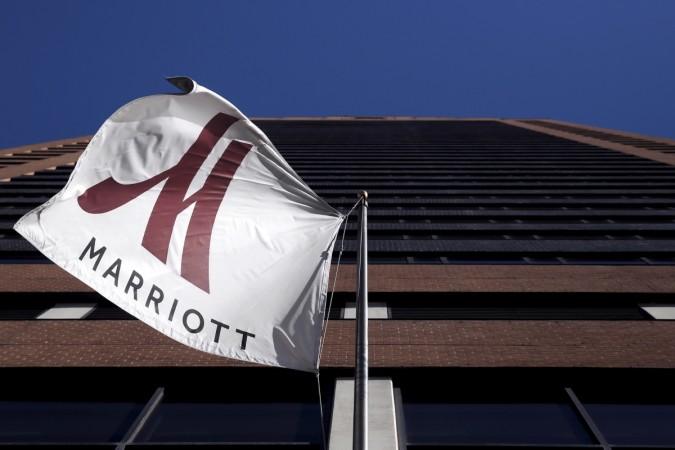
China's Anbang Insurance Group Co has challenged Marriott International Inc's merger with U.S. hotel operator Starwood with a $12.8 billion cash offer, burnishing its credentials as one of China's top corporate acquirers.
The non-binding bid, unveiled on Monday, just days after Anbang agreed to acquire Strategic Hotels & Resorts Inc from buyout firm Blackstone Group LP for $6.5 billion, would represent by far the biggest Chinese investment in U.S. real estate assets.
Chinese insurers are rushing to acquire high-yielding assets as they struggle to keep up with the policy liabilities of the country's ageing population. U.S. assets are also seen as a good hedge against any future weakness in the yuan.
The head of China's insurance regulator, Xiang Junbo, wrote in January in a magazine published by the country's central bank that Chinese insurers should venture overseas for investments. These investments, however, are not without hurdles.
Anbang's $2 billion acquisition of the iconic Waldorf Astoria Hotel in New York, which was completed last year, attracted scrutiny from the Committee on Foreign Investment in the United States (CFIUS), which reviews deals over possible national security concerns. U.S. President Barack Obama used to stay at that hotel when visiting United Nations headquarters in New York.
While there is no indication that a potential acquisition of Starwood by Anbang would raise concerns about potential espionage, experts said it was possible such a deal would also trigger a CFIUS review. One Starwood property for example, the W Hotel in downtown Washington, D.C. overlooks the U.S. Treasury. However, CFIUS issues with individual hotels could be remedied through divestment or other measures.
"Anything with a line of sight to a major U.S. government entity or security facility has to be a questionable part of the transaction and needs to be assessed by CFIUS," said Mike Wessel, a member of the congressional U.S.-China Economic and Security Review Commission.
Anbang plans to keep Starwood's corporate headquarters in the U.S. and not implement any layoffs, according to a person familiar with the company's plans.
Marriott said it remained committed to its cash-and-stock deal with Starwood, which would create the world's largest hotel chain with top brands including Sheraton, Ritz Carlton and the Autograph Collection.
Starwood said it received a waiver from Marriott that allows it to engage in discussions with Anbang's consortium. The waiver expires on March 18.
Marriott's deal, inked in November, currently values Starwood at $67.22 per share, below Anbang's $76 per share offer. Starwood's shares rose 8.1 percent in afternoon trading to $76.14. Marriott shares were up 3.1 percent at $71.
"Anbang's non-binding offer places Starwood shareholders in the difficult position of choosing between Marriott's bird-in-a-hand firm commitment and Anbang's two-in-the-bush offer," Nomura Securities analyst Harry Curtis wrote in a note to clients.
Marriott may slightly improve the terms of its offer and emerge as the winning bidder, Curtis said.
The Anbang-led consortium includes private equity firms J.C. Flowers & Co and Primavera Capital Group, a source close to the parties said. J.C. Flowers and Primavera did not immediately respond to requests for comment.
METEORIC RISE
Beijing-based Anbang's bid for Starwood epitomises its meteoric rise since it was founded in 2014 with an original focus on car insurance.
Thanks to a spate of deal making at home and aboard, privately-held Anbang now manages more than 1.9 trillion yuan ($292.3 billion) in assets, according to its website. Its chairman Wu Xiaohui married the granddaughter of former Chinese leader Deng Xiaoping.
Apart from its acquisition of Strategic Hotels & Resorts, Anbang has in the last 12 months taken control of Korean insurer Tong Yang Life, ailing Dutch group Vivat, and the Belgian banking operations of Delta Lloyd.
In November, Anbang agreed to buy U.S. annuities and life insurer Fidelity & Guaranty Life for about $1.57 billion.
Anbang participated in the sale process for Starwood last year but could not put together the financing that was required at the time to outbid Marriott, according to a person familiar with the matter who asked not to be identified disclosing confidential details. It was not clear how Anbang would fund its latest cash offer.
Starwood will have to pay Marriott a $400 million termination fee if it accepts a rival offer or withdraws its recommendation to its shareholders to vote in favour of the Marriott merger.
Lazard and Citigroup Global Markets Inc are financial advisers to Starwood and Cravath, Swaine & Moore LLP is its legal counsel. PJT Partners Inc is Anbang's financial advisor, while Skadden, Arps, Slate, Meagher & Flom LLP is its legal counsel.

















